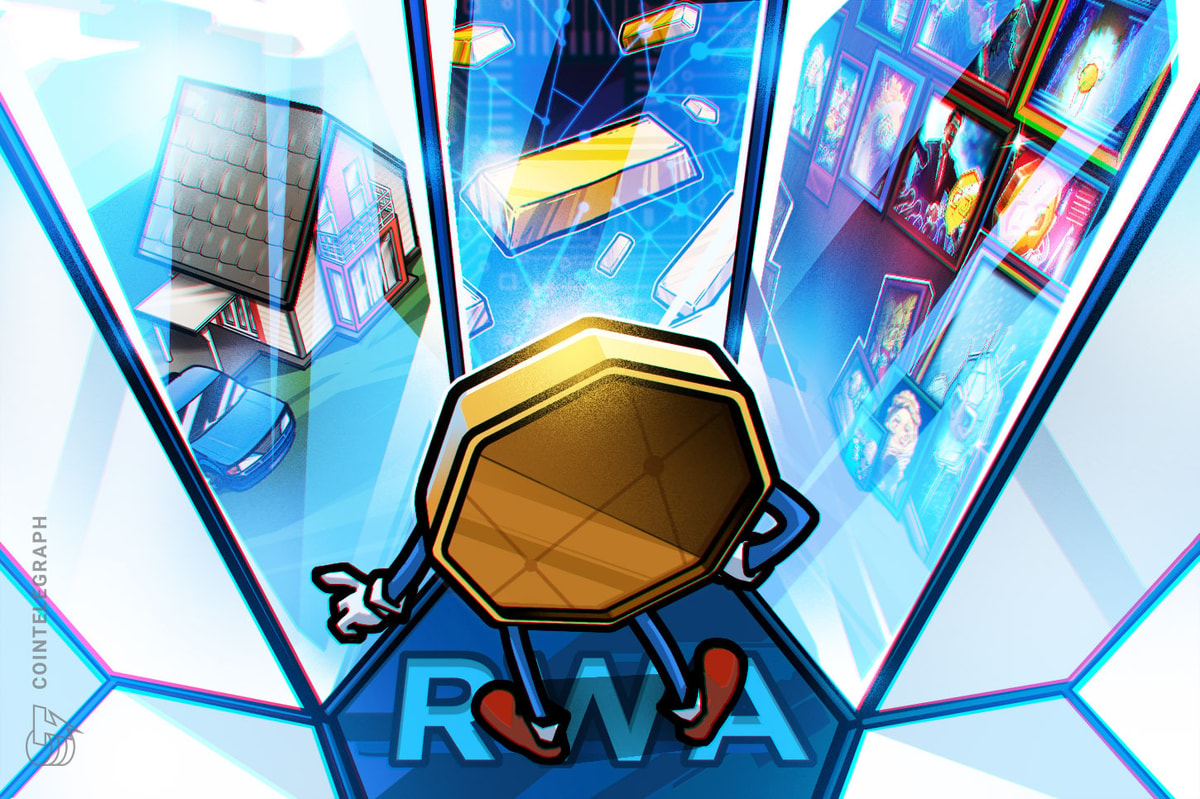Traditional finance (TradFi) firms have warmed up to the idea of tokenizing financial assets on public blockchains as the race toward blockchain-based tokenization heats up.
According to RippleX senior vice president Markus Infanger, TradFi players are finally bringing financial assets on-chain as they look to deploy for production and solve pain points in various value chains.
Speaking exclusively to Cointelegraph during Paris Blockchain Week, Infanger said that TradFi’s use of blockchain is finally becoming tangible.
“We’re starting a paradigm shift for blockchain technology, moving beyond the hype and into real utility. It’s starting to unfold,” Infanger said.
TradFi wants holistic blockchain solutions
The executive said that research estimates pin the future value of tokenized markets at $16 trillion, which is eight times bigger than the total market capitalization of the entire cryptocurrency sector.
“A couple of years ago, many of us in this space were envisioning that. It’s getting closer to reality, and it’s happening on public blockchains. At some point, it looked like it would only happen on JPMorgan Coin or IBM.”
Infanger said that advanced conversations with various financial institutions are ongoing, and they are exploring tokenization projects to issue assets on the XRP Ledger. These firms already have distribution lined up and can articulate use cases and how they want to use the underlying blockchain.
A tangible example of this was HSBC partnering with Ripple-owned technology firm Metaco to allow institutional investors to hold tokenized securities on its new custody platform in November 2023.
Infanger added that Ripple’s business is becoming more holistic by combining various solutions that make use of XRPL.
While Ripple is widely viewed as “a payments-first company” providing a blockchain-based payment solution to solve economic and financial friction, recent developments are broadening its appeal to both TradFi and decentralized finance (DeFi) players.
“We have a custody arm, a payments arm and our contributions to the XRP Ledger. The combination is a holistic digital asset infrastructure value proposition for traditional finance and developers who want to solve DeFi problems,” Infanger explained.
Ripple’s stablecoin
Ripple’s recently announced plans to issue its own United States dollar-pegged stablecoin on XRPL and Ethereum will complement its offering to institutions. Cointelegraph previously spoke to Ripple chief technology officer David Schwartz about the details of the stablecoin.
Infanger added further detail to the impetus behind Ripple’s stablecoin, highlighting that the stablecoin market could reach $2.8 trillion in five years given that there are some $22 trillion that are off-chain.
“Right now, we’re at $130 billion, so there’s clear demand, and there’s an expected trajectory of enormous growth. We’re really still at the early days,” Infanger said.
Another key driver was constant requests from developers in the XRPL ecosystem for a tier-one stablecoin offering like USD Coin (USDC) or Tether (USDT). Infanger said Ripple had used stablecoins in small-scale experimentation alongside XRP (XRP) and its payment product.
“We really envision our institutional DeFi use case, on one hand, tokenization on XRPL and then in our payments product for optionality and some use cases alongside XRP using the stablecoin and for the XRP ecosystem as a whole.”
Ripple has not yet confirmed when it will launch its stablecoin or what it will call the XRPL and Ethereum-based token.











